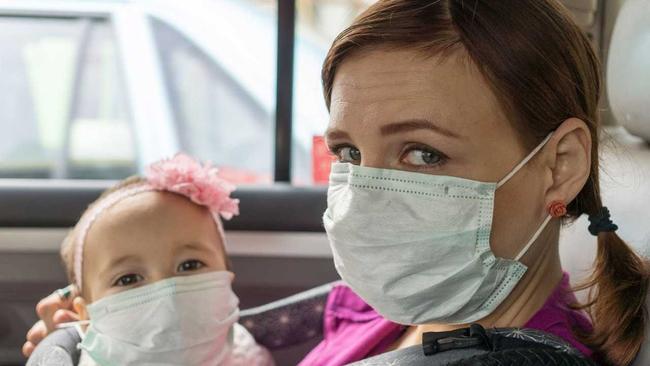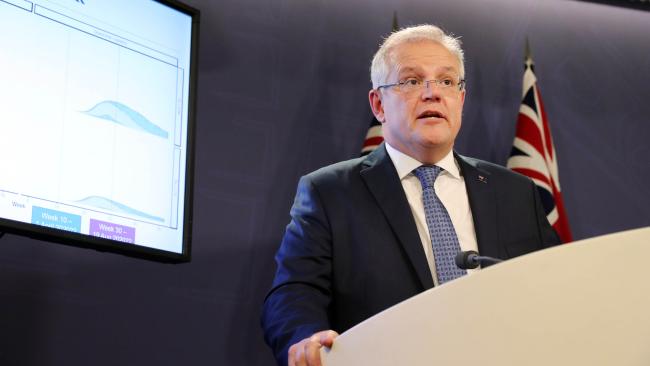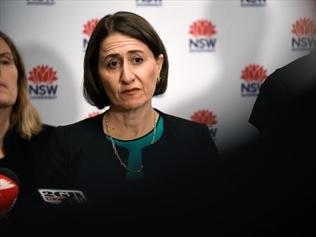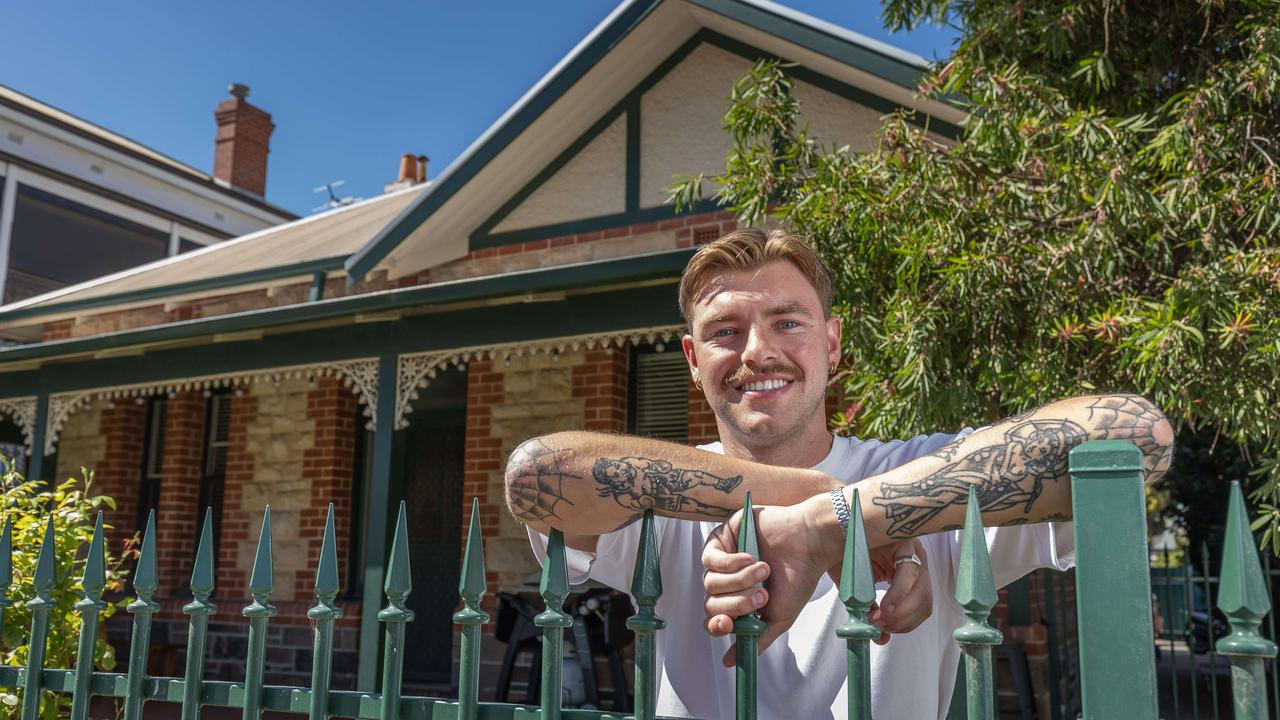Desperate plea for stimulus from Aussie sole traders
Majority of Australian small businesses are sole trader enterprises, but will they access the Federal Government and State Government's stimulus packages?

Business
Don't miss out on the headlines from Business. Followed categories will be added to My News.
WORKERS who don't fit the traditional role of 'employees' have been overlooked by the government as Covid-19 downturn pushes Australia closer to potential recession.
Prime Minister Scott Morrison's multi-billion dollar stimulus package to address the impact of Coronavirus (COVID-19) - totally ignores freelancers and sole traders with no employees, industry bodies say.
This oversight is concerning given small businesses account for nearly 98% of all Australian businesses, with the majority (62%) being sole traders with no employees.
In Coffs Harbour in 2018 there were 5844 registered businesses with majority listed as small businesses - a large percentage identifying as sole traders, with considerable growth in the number of ABN holders serving as 'freelancers'.
The Morrison Government on March 12 announced a $17.6 billion economic plan to keep Australians in jobs, keep businesses in business and support households and the Australian economy as the world deals with the significant challenges posed by the spread of the coronavirus.
The targeted stimulus package, it said is focused on keeping Australians in jobs and helping small and medium sized businesses to stay in business.
Prime Minister Scott Morrison said as part of the plan up to 6.5 million individuals and 3.5 million businesses would be directly supported by the package.
Small business owner Rebekah Lambert in a petition to the Federal Government has called for a stimulus package that's designed to keep small businesses and other Australians safe, this group receives no support.
Freelancers and sole traders - who work in 120-plus different vocations - say they were already seeing impacts to their businesses due to the bushfire crisis.
In addition to this, the effects of cash flow problems due to late paying and low paying clients, were already weighing heavy.
And now that contracts and projects are being cancelled, delayed, or put on indefinite hiatus due to coronavirus downturn, this group is staring down the barrel of absolute devastation to their livelihood.
"I had a client who had already cut the number of hours she was using me in half because she couldn't get stock from China, then yesterday I learnt that as of next week it will be dropped completely," Diandra, a virtual assistant said.
"So now, because my income has dropped, I've had to pull my daughter out of childcare as I can't afford to send her and my mental health is starting to suffer from the stress.
"My new bookings are drying up and the existing ones are being cancelled. I'm trying the best I can to pivot, but I may end up on welfare.
"And it's not just me, there's also a lot of other contractors that I normally pass work onto who will struggle if I'm no longer generating work myself" said Sophie, a freelance photographer.
GigSuper, a super fund focused exclusively on self-employed people, has called on the state and federal government to act now before this diverse and talented industry sector collapses.
"With the massive COVID-19 cloud of uncertainty hanging over us, businesses and consumers are trying to avoid any expenses that aren't associated with just getting through the next 6 months, so it's absolute carnage out there for freelancers," Peter Stanhope from GigSuper said.
Ms Lambert, who runs a freelance community group, Freelance Jungle said if the government is considering a second round of stimulus they need to make sure the 760,000 Australian freelancers and sole traders with no employees get something this time around.
"Not only is this sector exposed to a short-term shock like this because they often offer services that can be
cancelled at short notice, they also don't have holiday pay or other safety nets they can fall back
on," Ms Lambert said.
"Just because this group of innovators doesn't fit the usual 'employer-employee' business structure, it doesn't mean they don't need the stimulus. Let's help keep the economy going by supporting their needs, too."

THE FEDERAL GOVERNMENT'S CORONAVIRUS STIMULUS PACKAGE
Delivering support for business investment
- $700 million to increase the instant asset write off threshold from $30,000 to $150,000 and expand access to include businesses with aggregated annual turnover of less than $500 million (up from $50 million) until 30 June 2020. For example, assets that may be able to be immediately written off are a concrete tank for a builder, a tractor for a farming business, and a truck for a delivery business.
- $3.2 billion to back business investment by providing a time limited 15 month investment incentive (through to 30 June 2021) to support business investment and economic growth over the short term, by accelerating depreciation deductions. Businesses with a turnover of less than $500 million will be able to deduct an additional 50 per cent of the asset cost in the year of purchase.
- These measures started March 12 and will support over 3.5 million businesses (over 99 per cent of businesses) employing more than 9.7 million employees or 3 in every 4 workers. The measures are designed to support business sticking with investment they had planned, and encouraging them to bring investment forward to support economic growth over the short term.
Cash flow assistance for businesses
- $6.7 billion to Boost Cash Flow for Employers by up to $25,000 with a minimum payment of $2,000 for eligible small and medium-sized businesses.
The payment will provide cash flow support to businesses with a turnover of less than $50 million that employ staff, between 1 January 2020 and 30 June 2020. The payment will be tax free.
This measure will benefit around 690,000 businesses employing around 7.8 million people.
Businesses will receive payments of 50 per cent of their Business Activity Statements or Instalment Activity Statement from 28 April with refunds to then be paid within 14 days.
- $1.3 billion to support small businesses to support the jobs of around 120,000 apprentices and trainees. Eligible employers can apply for a wage subsidy of 50 per cent of the apprentice's or trainee's wage for up to nine months from 1 January 2020 to 30 September 2020.
Where a small business is not able to retain an apprentice, the subsidy will be available to a new employer that employs that apprentice.
Stimulus payments to households to support growth
- $4.8 billion to provide a one-off $750 stimulus payment to pensioners, social security, veteran and other income support recipients and eligible concession card holders.
Around half of those that will benefit are pensioners.
The payment will be tax free and will not count as income for Social Security, Farm Household Allowance and Veteran payments.
There will be one payment per eligible recipient. If a person qualifies for the one off payment in multiple ways, they will only receive one payment.
- Payments will be from 31 March 2020 on a progressive basis, with over 90 per cent of payments expected to be made by mid-April.
Assistance for severely-affected regions
- $1 billion to support those sectors, regions and communities that have been disproportionately affected by the economic impacts of the Coronavirus, including those heavily reliant on industries such as tourism, agriculture and education.
This will include the waiver of fees and charges for tourism businesses that operate in the Great Barrier Reef Marine Park and Commonwealth National Parks.
It will also include additional assistance to help businesses identify alternative export markets or supply chains.
Targeted measures will also be developed to further promote domestic tourism.
Further plans and measures to support recovery will be designed and delivered in partnership with the affected industries and communities.
- The Government is also offering administrative relief for certain tax obligations, including deferring tax payments up to four months. This is similar to relief provided following the bushfires for taxpayers affected by the coronavirus, on a case-by-case basis.

NSW GOVERNMENT CORONAVIRUS STIMULUS PACKAGE
Business support and jobs
- $450 million for the waiver of payroll tax for businesses with payrolls of up to $10 million for three months. This means these businesses will save a quarter of their annual payroll tax bill in 2019-20;
- $56 million to bring forward the next round of payroll tax cuts by raising the threshold limit to $1 million in 2020-21.
- $80 million to waive a range of fees and charges for small businesses including bars, cafes, restaurants and tradies;
- $250 million to employ additional cleaners of public infrastructure such as transport assets, schools and other public buildings;
- More than $250 million to bring forward maintenance on public assets including social housing and crown land fencing;
- $500 million to bring forward capital works and maintenance.
- Payroll tax waivers will be administered by Revenue NSW.
- Waivers of fees and charges for small businesses will be facilitated through Service NSW.
Originally published as Desperate plea for stimulus from Aussie sole traders


